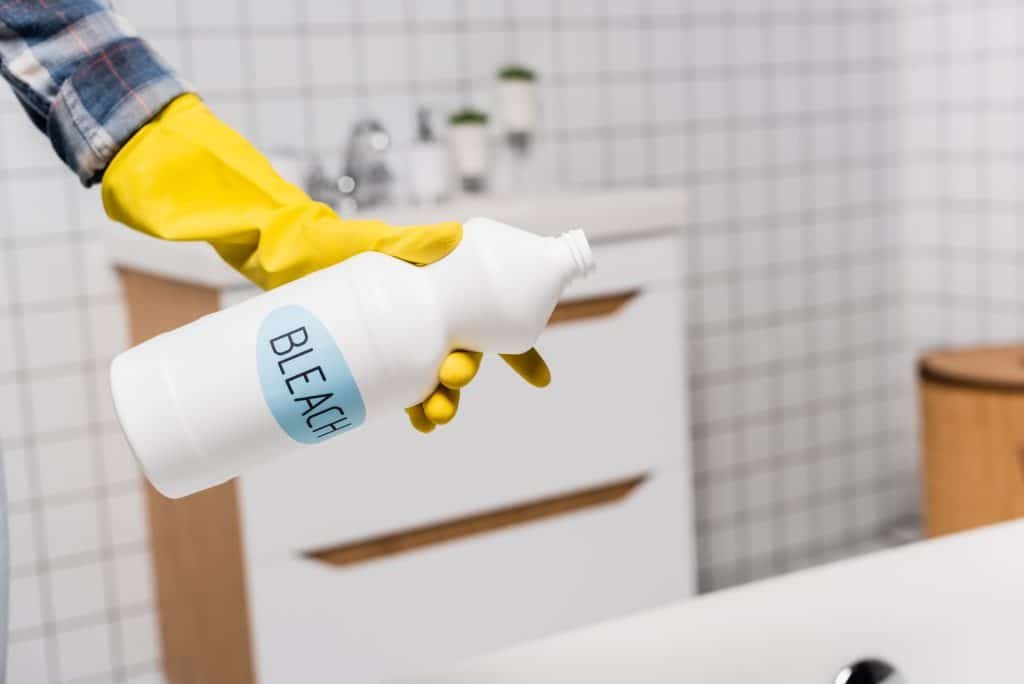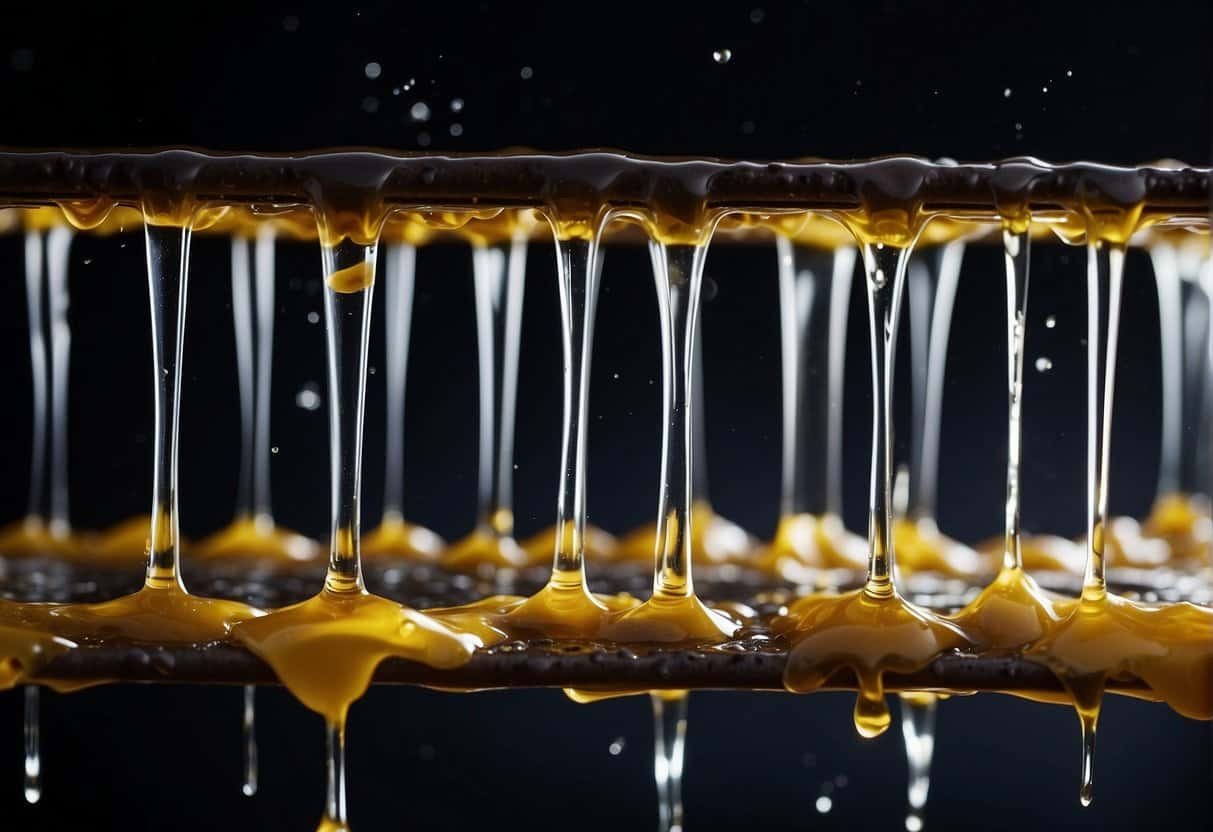Ant infestations can come suddenly and seemingly out of nowhere. You might have heard that bleach can kill ants, but does it also repel them?
Bleach can kill ants (including fire and carpenter ants) because it’s toxic to them. Spraying bleach onto ants is the most effective method of killing them. Bleach also repels ants as they don’t like the smell of sodium hypochlorite, bleach’s main ingredient.
In this article, I’ll explain if and how bleach can kill or repel ants, including fire ants and carpenter ants.
Does Bleach Kill Ants? Inside vs. Outside
Ant infestations can occur in your home or outdoors. So, is bleach effective at killing ants in both places?
Bleach kills ants indoors and outdoors, but you need to spray it directly onto them. Ants breathe through their exoskeletons, so bleach is toxic to them when inhaled. If you apply bleach to the floor or other surfaces where ants are present, it will likely only kill a few and act as a deterrent.
When you have an ant infestation, there are likely traces of food or perfume smells in your home. Once an ant finds a good food source, it will leave a chemical trail behind them for other ants (source: US National Library of Medicine).
Cleaning alone doesn’t remove these smells, but using bleach can eliminate them and repel ants.
A typical example of an indoor ant infestation is in the kitchen, where food preparation, spills, and eating occur. Ants are attracted to the smells in a kitchen, but regularly wiping down surfaces can help eliminate ants.
Outdoor ant infestations commonly occur near trash cans or patios where there is a food source. You can prevent ant infestations by keeping your trash in sealed bags and keeping the area around your trash cans clean. If you eat on your patio, try and clean up food spills as soon as possible.
Three Ways To Effectively Kill Ants With Bleach
According to a study conducted by Texas A&M University, bleach was effective at killing ants. (source: Texas A&M University)
Below are three effective ways to kill ants with bleach:
- Bleach spray: Fill a spray bottle with bleach and spray the bleach onto any ants that you can see. Leave them for about half an hour, during which time they will breathe in the fumes through their exoskeletons and die. You can then remove the dead ants (source: Harvard Forest).
- Boiling water and bleach: For a particularly bad ant infestation, and to get rid of many ants quickly, combine bleach and boiling water in a jug. After you’ve poured the bleach mixture onto the ants, the heat and bleach will kill them instantly.
- Neat bleach in the ant nest: If you’re lucky enough to have found the source of your ant infestation (the nest), pour neat bleach into it to destroy it.
Remember that bleach solution is toxic and harmful to humans, animals, and plants. Use it carefully, and get rid of bleach residue by rinsing the surface with water. Bleach also leaches color from fabrics and plants, so take care not to get it on your clothing or carpet.

Will Bleach Kill Fire Ants, Carpenter Ants, or Others?
Bleach is an excellent ant killer and repellent. But can it also kill fire ants, carpenter ants, and others?
Bleach will kill fire ants, carpenter ants, and Argentine ants. However, fire ants often nest underneath the grass, and using bleach to destroy the nest can discolor your lawn. Additionally, carpenter ants enjoy nesting behind drywall, so it can be challenging to reach them.
Having a fire ant infestation is worrying because they can bite and hurt small animals or kids. They love nesting under grass, and their nests are easy to spot as they appear as small mounds of sand.
You can pour diluted bleach into the fire ant mound if you don’t mind it stripping the color from your grass. Alternatively, you can pour boiling water down the nest, and the heat will kill the ants and destroy the nest.
Carpenter ants enjoy burrowing in wood and often live behind drywall. It can be tricky gaining access to the carpenter ant nest unless you remove the drywall panel.
However, if you know the nest’s exact location, you could drill a tiny hole close to the nest and spray bleach through the hole using a trigger spray nozzle.
Do Ants Like Bleach? Are They Attracted or Repelled by It?
Ants are attracted to the following smells:
- Sugar
- Fruit and fruit-scented commercial products, like candles
- Protein, including meat and nuts
- Starches
- Fats and oils
- Perfume and cologne (source: Vanderbilt University)
Another study by Texas A&M University revealed that bleach acts as a chemical barrier in preventing ants from moving further. (source: Texas A & M University)
Ants do not like bleach and are repelled by it. Ants hate the strong smell of sodium hypochlorite. Whether you use plain bleach or scented bleach won’t make a difference as the sodium hypochlorite smell overrides the other scents in the bleach.

Can I Use Bleach as a Deterrent to Ants?
You can use bleach as a deterrent to ants because they hate the smell of sodium hypochlorite, bleach’s main ingredient. When bleach dries, the sodium chlorite remains on the surface but gradually degrades due to light exposure, so you should use it regularly.
Using bleach every second or third day as an ant deterrent can be effective. However, the best deterrent is to remove what initially attracted the ants. This is usually leftover food particles or a stained kitchen worktop.
Keeping your home clean and free of crumbs and grime is the best way to avoid an ant infestation.
If you’re concerned about exposing your family or pets to bleach, you might consider a natural alternative. Keeping a pot of any of the below herbs in your kitchen can repel ants:
- Lavender
- Mint
- Thyme
- Lemongrass
Ants hate the smell of the essential oil in these herbs (source: US National Library of Medicine).
As you can see, bleach is incredibly effective at killing and repelling ants, including fire ants and carpenter ants.
I hope that you found our ant deterrent recommendations helpful. The best solution depends on your situation, how bad the infestation is, and if you’d prefer a natural method instead.










